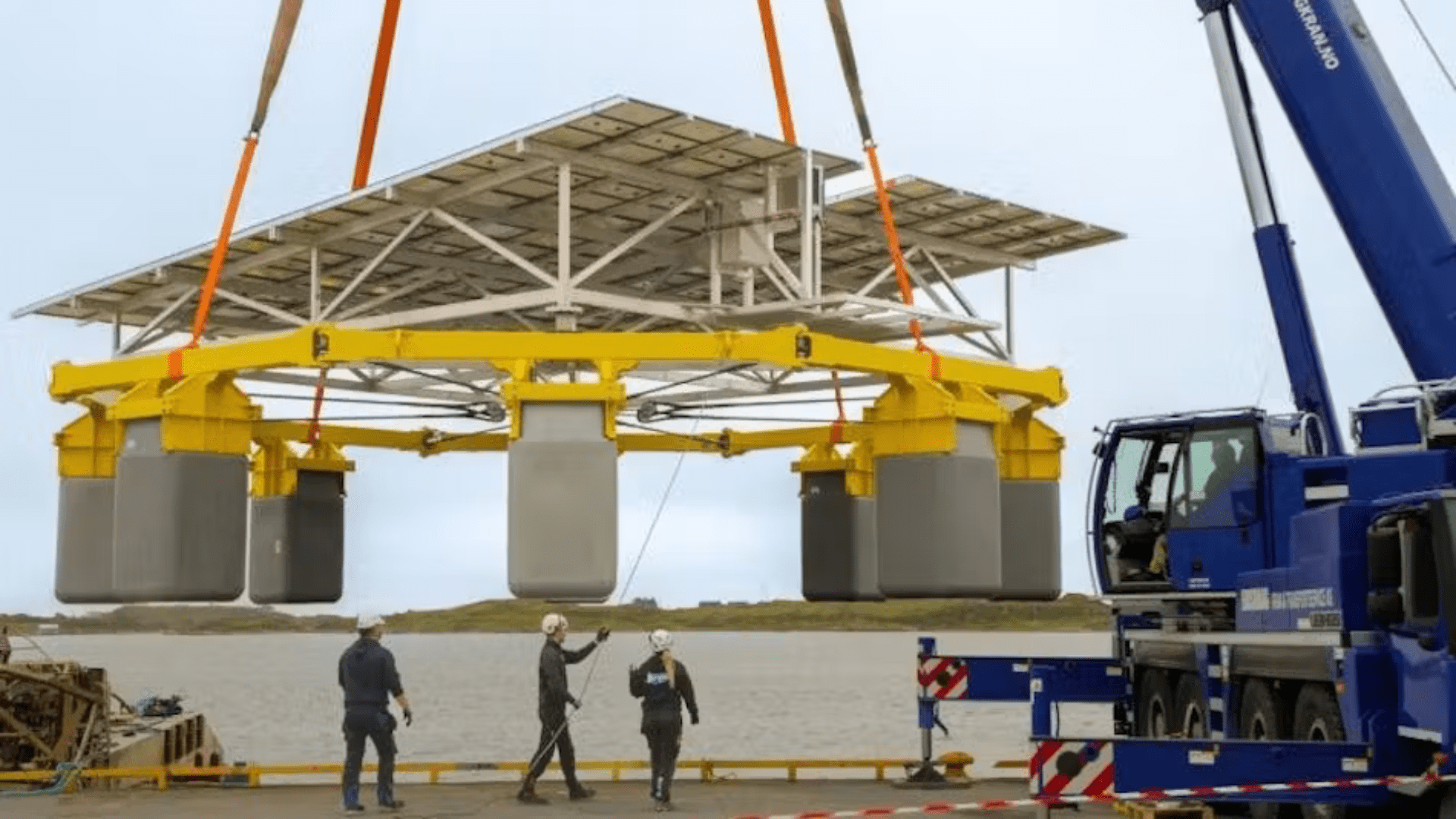The engineering company Saipem launched a full-scale prototype of its floating solar platform, the XolarSurf, designed for harsh offshore floating solar. A full-scale prototype was launched at sea and will remain there for about a year.
XolarSurf
The cutting-edge modular solution is designed to withstand waves up to 26 feet. The company will monitor its performance and production capacity during the year-long test. Its modular design makes it flexible, making relocation, transport, and reuse easier.
“XolarSurf represents a new frontier in the floating solar segment, capable of being installed in any coastal or offshore location, even under harsh environmental conditions,” Sapiem told Offshore Energy. “It offers an optimal solution for hybrid projects, such as offshore wind farms, both fixed and floating.”

Moreover, the floating solar panels are custom-made to generate energy for ocean use. Moss Maritime developed the XolarSurf and aimed to provide the aquaculture industry with much-needed power and the capabilities to do so far from the shore. Additionally, the ultimate goal of the solution is to make solar technologies as easy to use as possible. After a few years, the XolarSurf can be mass-produced.
Sapiem said, “The prototype is a result of several years of development, engineering, model and component testing in laboratories as well as full-scale testing of critical marine operations relevant to the installation of an offshore floating solar park, with a joint effort by Saipem, Moss Maritime, and Equinor that have combined their commitment and expertise.”
One of the biggest benefits is reaching remote locations with limited access to land. Not having access to power is concerning for fishing industries specifically.
The company said, “The modular design of XolarSurf allows it to be easily relocated to new sites or expanded in its existing location.”
Demand for Solar
The new renewable energy solution eliminates the need for land and requires less maintenance. There is a rising demand for this kind of solution. Floating solar has the potential to contribute to the energy transition.
For example, in March, a company in the Netherlands started constructing the world’s largest floating solar power plant. Similarly, the company saw an opportunity in offshore solar.







